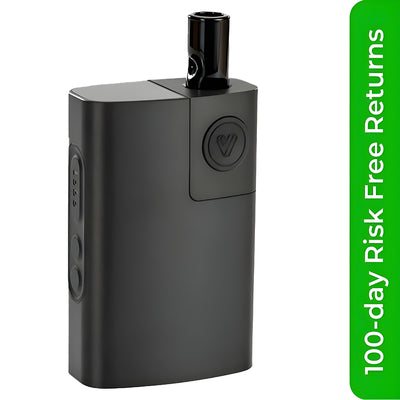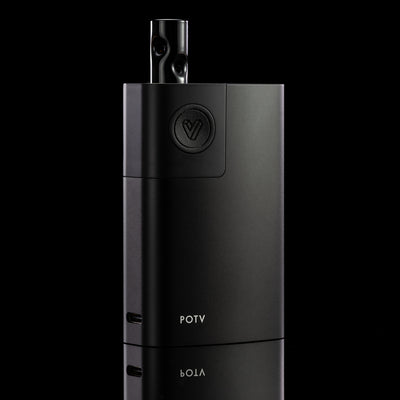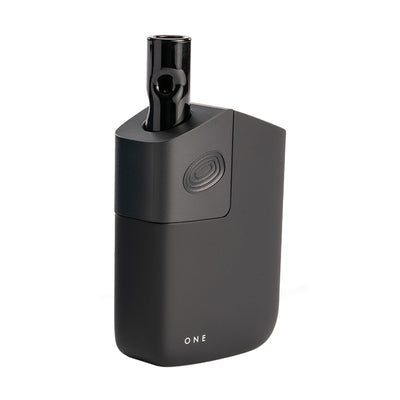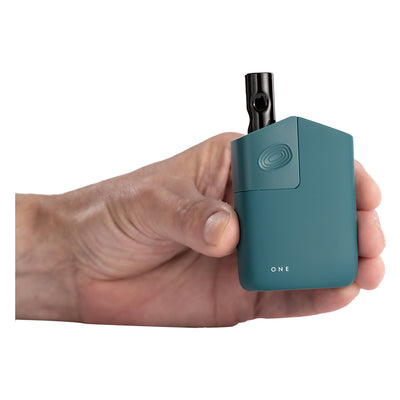As more people switch from traditional smoking, one method that’s been gaining attention is the "heat-not-burn" technology. It's transforming the way dry herb enthusiasts experience their favorite strains with a cleaner, healthier, and more flavorful alternative to combustion.
What is "Heat-Not-Burn"?
In simple terms, heat-not-burn technology (vaporization) uses convection or conduction to heat your dry herbs to the point where active compounds are vaporized—but not burned. The key here is avoiding combustion. Traditional smoking burns the material at high temperatures and releases not only the desired compounds but also harmful byproducts like tar and other toxins.
With heat not burn, your herbs are gently heated, which releases the potent, flavorful vapor you’re looking for—without the smoke.
Benefits of Heat-Not-Burn Technology
1. Healthier alternative
Vaping significantly reduces the intake of harmful chemicals and carcinogens typically associated with smoking. It's a smoother experience for your lungs and overall health.
2. Superior flavor
When herbs are burned, the high heat destroys some of the delicate terpenes responsible for the flavor and aroma. Heat-not-burn preserves these compounds and delivers a richer, fuller flavor profile with every draw.
3. More efficient
Vaping your herbs in a heat-not-burn device allows for more efficient extraction of the active compounds. You can use less material to achieve the desired effects compared to traditional smoking methods, which burn through herbs quickly.
4. Discreet & convenient
Since there’s no combustion, there’s minimal odor. Vaporizers are a more discreet option for those who want to enjoy their herbs without drawing attention or lingering smells.

How does heat-not-burn work?
Vaporizers come in three main types: convection, conduction, and hybrid. Convection vaporizers pass hot air through the herbs to release vapor, while conduction vaporizers heat the herbs directly via a hot surface. Hybrid vapes combine both of those methods into one. These types heat the material just enough to vaporize the active compounds without ever burning your herbs.
The future of herbal consumption
The shift toward heat-not-burn technology is more than just a trend; it's part of a broader movement toward healthier, more sustainable ways of enjoying dry herb. With innovations in vaporizer design, users can expect even better control over temperature, flavor, and overall experience in the future.
At Planet of the Vapes, we’re dedicated to helping you explore the latest in dry herb vaping technology. Whether you’re new to vaping or a seasoned pro, our collection of vaporizers is curated to suit all preferences and budgets.
FAQs for Heat-Not-Burn
1. What is a heat-not-burn vaporizer?
A heat-not-burn vaporizer heats dry herbs to a temperature below combustion, releasing the active compounds as vapor without burning the material. This method preserves flavor and reduces harmful byproducts associated with smoking.
2. How does heat-not-burn differ from smoking?
In smoking, the herb is burned, which produces smoke containing harmful toxins and tar. Heat-not-burn vaporizers only heat the herb, releasing vapor that contains the desired compounds without creating smoke or ash.
3. What are the benefits of using a heat-not-burn vaporizer?
Heat-not-burn vaporizers offer several benefits, including better flavor, smoother hits, fewer toxins, and more efficient use of your herbs. It’s also a healthier alternative to smoking since it avoids combustion byproducts.
4. Is heat-not-burn healthier than traditional smoking?
Yes, because it avoids combustion, heat-not-burn vaporizers reduce exposure to harmful byproducts like tar, carcinogens, and toxins found in smoke, making it a healthier alternative to smoking.












